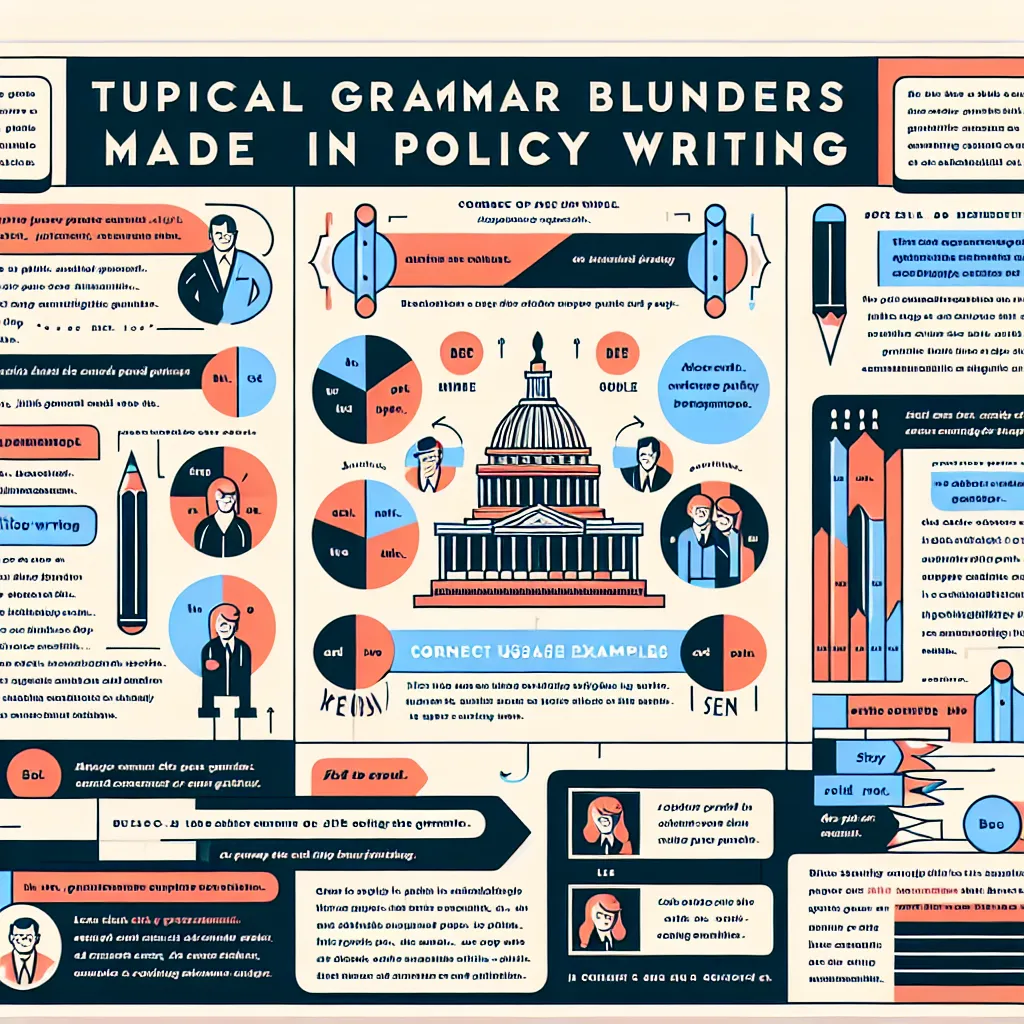Policy documents require a high level of linguistic precision and clarity. Mastering advanced grammar for these crucial texts is essential for professionals in government, law, and corporate sectors. This comprehensive guide will explore key grammatical techniques to enhance the quality and effectiveness of your policy writing.
Understanding the Importance of Advanced Grammar in Policy Documents
Policy documents serve as the foundation for decision-making, regulations, and organizational guidelines. The language used in these documents must be unambiguous, concise, and authoritative. Advanced grammar techniques play a vital role in achieving these objectives.
 Advanced Policy Writing
Advanced Policy Writing
Why Advanced Grammar Matters
- Precision: Eliminates ambiguity and misinterpretation
- Credibility: Reflects professionalism and expertise
- Consistency: Ensures uniform interpretation across different audiences
- Legal compliance: Reduces risks of legal challenges due to unclear language
Key Advanced Grammar Techniques for Policy Writing
1. Complex Sentence Structures
Policy documents often require the expression of complex ideas and relationships. Mastering advanced sentence structures allows writers to convey intricate concepts clearly and concisely.
Example:
- Basic: “The policy will be implemented. It will affect all departments. The implementation will occur over six months.”
- Advanced: “The policy, which will affect all departments, will be implemented over a six-month period.”
This advanced structure combines multiple ideas into a single, cohesive sentence, improving flow and readability.
2. Proper Use of Modal Verbs
Modal verbs are crucial in policy writing to express levels of obligation, permission, or possibility. Understanding their nuances is essential for precise communication.
- Must: Indicates absolute requirement
- Shall: Denotes a strong obligation or duty
- Should: Suggests a recommendation
- May: Implies permission or possibility
Example:
“Employees must submit expense reports within 30 days, shall attend quarterly meetings, should participate in optional training sessions, and may request flexible working hours.”
3. Passive Voice in Policy Context
While active voice is generally preferred in writing, passive voice has its place in policy documents, especially when emphasizing the action rather than the actor.
Example:
- Active: “The board will review all applications.”
- Passive: “All applications will be reviewed by the board.”
The passive construction can be useful when the focus should be on the process rather than the agent performing the action.
For more insights on using advanced adverbial phrases in formal writing, check out our guide on how to use advanced adverbial phrases in formal writing.
4. Nominalizations for Emphasis
Nominalizations involve turning verbs or adjectives into nouns. This technique can add formality and emphasis to policy language.
Example:
- Basic: “We decided to implement the new system.”
- Nominalized: “The implementation of the new system was decided upon.”
While overuse of nominalizations can lead to wordiness, strategic use can enhance the formal tone of policy documents.
5. Precise Use of Conjunctions and Transitional Phrases
Conjunctions and transitional phrases are vital for creating logical connections between ideas in policy documents.
Examples:
- Furthermore
- Notwithstanding
- In accordance with
- Pursuant to
- Subject to the provisions of
These phrases help create a clear logical flow and establish relationships between different sections of the document.
Advanced Grammatical Constructions for Specific Policy Contexts
1. Legal and Regulatory Language
Policy documents often need to incorporate legal terminology and structures. This requires familiarity with specific grammatical constructions common in legal writing.
Example:
“Notwithstanding the foregoing, the parties hereto agree that, in the event of a breach of Section 3.2, the non-breaching party shall be entitled to seek equitable relief, including injunctive relief and specific performance.”
This sentence demonstrates the use of legal jargon, complex sentence structure, and specific terminology typical in policy documents with legal implications.
2. Conditional Statements in Policies
Policies frequently need to address various scenarios and conditions. Mastering the use of conditional statements is crucial for clarity in such situations.
Example:
“If an employee fails to comply with the attendance policy, then disciplinary action may be taken. However, should extenuating circumstances be present, the supervisor may, at their discretion, waive the standard consequences.”
This example shows how complex conditional statements can be used to cover multiple scenarios within a policy.
For more advanced grammar techniques specifically tailored for government reports, visit our article on advanced grammar for government reports.
Common Pitfalls and How to Avoid Them
- Ambiguity: Ensure each sentence has a clear, single interpretation.
- Overcomplication: While advanced structures are useful, clarity should never be sacrificed for complexity.
- Inconsistency: Maintain consistent terminology and grammatical structures throughout the document.
- Verbosity: Use advanced grammar to enhance conciseness, not to add unnecessary words.
 Common Grammar Pitfalls
Common Grammar Pitfalls
Practical Tips for Improving Your Policy Writing Grammar
- Read extensively: Familiarize yourself with well-written policy documents in your field.
- Practice regularly: Apply advanced grammatical techniques in your daily writing.
- Seek feedback: Have colleagues or experts review your work for grammatical precision.
- Use style guides: Refer to established style guides specific to policy writing in your domain.
- Continuous learning: Stay updated on evolving language standards in policy writing.
For those interested in applying these skills to corporate documentation, our guide on advanced grammar for corporate reports offers valuable insights.
Conclusion
Mastering Advanced Grammar For Policy Documents is a crucial skill for professionals in various fields. By incorporating complex sentence structures, using modal verbs accurately, understanding the appropriate use of passive voice, and employing precise terminology, you can create clear, authoritative, and effective policy documents. Remember, the goal is always clarity and precision – advanced grammar should serve to enhance these qualities, not obscure them.
Continue to practice and refine your skills, and don’t hesitate to seek expert advice when dealing with particularly complex or high-stakes policy writing tasks. With dedication and attention to detail, you can significantly improve the quality and impact of your policy documents.




